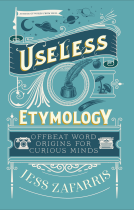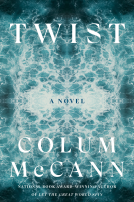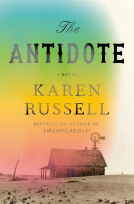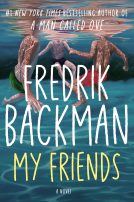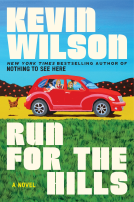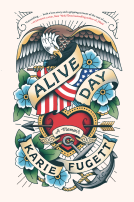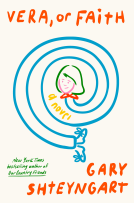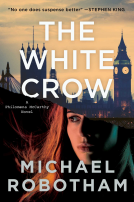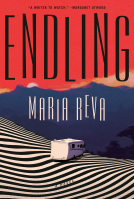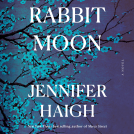
Everything Like Before
Stories
by Kjell Askildsen
This title was previously available on NetGalley and is now archived.
Send NetGalley books directly to your Kindle or Kindle app
1
To read on a Kindle or Kindle app, please add kindle@netgalley.com as an approved email address to receive files in your Amazon account. Click here for step-by-step instructions.
2
Also find your Kindle email address within your Amazon account, and enter it here.
Pub Date Apr 27 2021 | Archive Date Apr 22 2021
Talking about this book? Use #EverythingLikeBefore #NetGalley. More hashtag tips!
Description
A man and a woman in a quiet, remote house, an old man on a park bench, an estranged brother in a railway café -- Kjell Askildsen's characters are surrounded by absence. Filled with disquiet, and longing, they walk to a fjord, they smoke, they drink on a veranda, they listen to conversations that drift through open windows. Small flashes like the promise of a sunhat, a nail in a cherry tree, or a raised flag, reveal the interminable space between desire and reality in which Askildsen's characters are forever suspended. Widely recognized as one of the greatest modern short-story writers, with unadorned prose and a dark humor, Askildsen captures life as it really is, the worlds of his characters uncanny mirrors of our own.
Advance Praise
"These three dozen stories and vignettes by the venerable Norwegian writer range from bleak to darkly comic . . . [Everything Like Before] features mainly spare prose exploring the distances and conflicts between people linked by blood, marriage, or circumstance . . . [Kjell Askildsen] is a fine craftsman who offers lighter moments amid the Nordic gloom and an unrelenting intelligence." -Kirkus Reviews (Starred Review)
• "Ultimately, Askildsen's stories are about the horror of the mundane, the emptiness of everyday life, and the paradox of both wanting and fearing change (...) these tales are unconcerned with plot, but rather focus on the subtleties and impossibilities of human interaction. They provide us with windows through which we, like the characters, may watch each other, may be held up for scrunity." -- The Literateur
• "Kjell Askildsen's dry, absurd humor is not unlike that of Beckett...His short stories are packed with irony, and the dialogue is sharp and expressive" -- Times Literary Supplement
• "a meditation on individual freedom, a book fraught with the day-to-day pressures of human life. The nine brief stories collected within can be described in terms of absences. The absence, for example, of experimental or ornate, "flowery," prose. The absence of unnecessary characters. The absence of exotic or alien locales, or of complicated plot arcs ... One senses that Askildsen is delicately, deliberately seeking answers to a particular set of nagging questions, and is never quite satisfied with what he uncovers" -- Adam Segal, Numero Cinq Magazine
• "Kjell Askildsen writes what might reasonably be called ghost stories in which there are no ghosts. His prose, uniformly muted and bare, seems haunted by absence...His landscapes are stage sets in which houses and lawns exist alone in an empty world..." -- Aaron Their, The Nation
• "...full of compelling strangeness. Lives surge through a few brittle pages, suppressed loves and resentments threaten to erupt. Characters are rarely isolated but their loneliness is palpable as they steal time in the shadows. Names recur throughout the book so the reader tries to connect people with events, but it's the loose ends which draw you back to these taut dramas." - Max Liu, The Independent
*
* * *
Available Editions
| EDITION | Other Format |
| ISBN | 9781939810946 |
| PRICE | $21.00 (USD) |
| PAGES | 275 |
Featured Reviews
This compilation of 37 stories is a series of vignettes that bring into view the lives and inner thinking of us: the elderly, wives, husbands, sons, daughters, brothers, sisters, moms, and dads. That we are shaped by our memory and memories (faulty as they can be), and our shared plight with aloneness and loneliness. How we hide our true selves under bravado and cruelty, in fear that our weaknesses and neediness will be discovered. That death, love, and life can be scary, lingering, unwanted, ignored, painful, humorous, and wonderful.
You won’t find much drama or plot in this book. What you will get are interactions: a couple vacationing at a cabin; a son visiting his dad after a prolonged absence; a lonely man who is unable to ask out a waitress; an old man meeting another old man on a park bench; a widower who throws out all of his dead wife’s things so he’d finally have room for himself (who needs three drawers for underwear?).
Many of these vignettes are only a page or two; there are no wasted words. The longest story is Thomas F’s Final Notes to the Public Carl Lange. The plot is the police visit Carl to question him about a rape. What the story is really about is how he thinks and acts during and after this visit. It is spot on—to me—how an insecure person might react in such a situation. A wonderful story.
I highly recommend this book.
I would like to thank NetGalley and Archipelago Books for the opportunity to read and review this wonderful book.
 Sue B, Reviewer
Sue B, Reviewer
A quietly devastating collection of stories, mostly specific events taking place over the course of one day. They relate encounters between strangers or, just as often, between people who are related or living together who find they do not know each other well at all. There is a tendency for one person to guess what the other is thinking or how they will react to their, often provocative or even malevolent, behaviour. Combined with dialogue fraught with misunderstanding and evasion, this creates tense atmospheres with frequently surprising outcomes. As they progress, the stories become shorter and more observational, preoccupied with old age and death, and increasingly poignant. Scandinavian noir at its best and highly recommended.
 Kasa C, Reviewer
Kasa C, Reviewer
Vignette visits into lives of contemporary Norwegians, sometimes just a sliver of a view. Another gem from archipelago imprint.
 Mandy J, Reviewer
Mandy J, Reviewer
I’m not much of one for reading short stories, but I found this collection from acclaimed Norwegian writer Kjell Askildsen very entertaining indeed. More vignettes than fully-fledged out stories, I enjoyed the black absurdist humour, laconic dialogue and the insightful portrayal of the lack of human connection. Shades of Beckett and Kafka at times, but actually a completely original voice. Clever use of pauses, eloquent depiction of what’s not said rather than what is, and the ability to unsettle are all much in evidence. Not a volume to read straight through, but one to pick up and read just one or two at a time to get the full disorienting effect.
 Hilary W, Reviewer
Hilary W, Reviewer
This collection of short stories has been translated from the Norwegian by Stan Kinsella. While they cover place, family and memory in their various ways they preponderantly show a view of the fading and constraints of old age. Thomas in his eighties a writer is still recording the passing of his life. The reader might wonder how close those tales are to true autobiography.
A few of the tales are of teenage years – perhaps sixty to seventy years previously, in a harsh farming life with an abusive father. That life and then escape to a completely different lifestyle, but the reader can only wonder if the experiences fed into the later life choices and responses. We see a series on married life – again filled with dissatisfaction (and alcohol) making do, but seemingly not happy. The ambit of experience starts to move to the foreign holiday, sitting watching and enduring. A later tale tells of the satisfaction of the rapid clearing out of a dead wife’s possession leaving the flat and his life totally free of her – except the scolding from another in the family. Another the death of an elderly sister rarely seen. All are from the perspective of a detached viewer, really not interested in the views or feelings of the other.
But essential they talk of aging, meeting elderly friends and hearing of others dead and dying – however funerals might need to be avoided. But do you bother to build new friends and relationships if you think you are heading to death? Is it worth the effort? With no friends, there is no real reason to go out far, life contracts even further, then weakness creeps. Constrained in a room by disability or stairs, the view of the possibly “interesting” will be limited by the width of the window and the willingness of people outside to oblige. The mind will then be the only place to go – but mean while the essential writer survives with pen and the words.
The reader needs to decide through the clever visual creation of these places how much is true, how much is distortion or overlaid by delusional memories, or is a wished other. The later tales seem to be a way of not just marking the passing days, but affirming the writer is still alive. But collectively they mark the shrinking of mobility, occupations, companionship and reliance on just memory or the minutiae of every simple repeating day.
But reading the realities (woes?) of a man ill fitted to the community around him is not comfortable. His self imposed life could so easily become a close to reality to others as they age and weaken (even without the impact of Covid and such things). In reality of course he was never was as isolated as claimed because the writing of books is a reaching out to others, even if you do not want them to reply.
 Michael J, Educator
Michael J, Educator
This is really a remarkable collection of short (many very short) stories by Kjell Askildsen. They are subtle and dark, but often wryly funny, almost in spite of themselves. The Norwegian setting is there but rarely alluded to, which makes some of the stories seem like fables. They're full of old men who have had enough of life (the importance of bannisters is a repeated motif), couples falling apart, flirting with others, or finding they don't really know each other (see the title story), funerals, and brothers reluctantly interacting with siblings. In the ironically-titled "An Uplifting Funeral" these last two themes come together as the narrator ends up denying the existence of his twin brother and not to his benefit. The stories tackle the mundanity and unpleasantness of human nature, but somehow do so in a very humane way. It's also eminently quotable. From "The Bannister" (naturally there is a story with that title): “'But don’t you understand,' I said, 'that on occasion that banister is all I have to hold onto in life?' I immediately regretted having said it, precise formulations should be directed at contemplative people, otherwise things become a right mess". And from the end of "Gustav Herre": "What a stupid story, she said." Can we have more translations of Askildsen's work please?

